COLLABORATORS
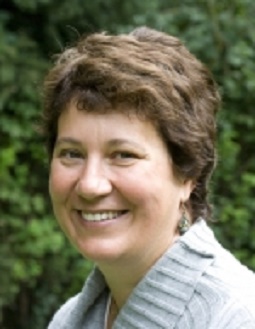
Alice Bellagamba
Alice Bellagamba is Professor of Social and Cultural Anthropology at Università degli Studi di Milano-Bicocca and a specialist in African Studies. She graduated in Philosophy at the University of Turin, earning her Ph.D. in socio-cultural anthropology at the same institution. In 2004-2005, she was Alexander Von Humboldt Fellow at the University of Bayreuth, and in 2011-2012 EURIAS Senior Fellow at the Wissenschaftskolleg Zu Berlin. Her research in The Gambia and Senegal has resulted in publications on memory, colonialism, the legacies of slavery, and the history of international migrations. Her collaborative work with Sandra Greene and Martin Klein on sources for the study of African slavery and slave trade has led to the publication of three collective volumes: African Voices on Slavery and the Slave Trade. Vol. 1: The Sources (2013); Vol. 2: Essays on Sources and Methods (2016); and The Bitter Legacy: African Slavery Past and Present (2013).

Antonio de Almeida
António de Almeida Mendes is a historian specialised in slavery and slave trades of early modernity (from 14th to 16th century) and the history of the Atlantic. He is a lecturer at the University of Nantes, founding member of the International Centre for Research into Slavery, member of the Research Centre on International History and Atlantic and, from 2013 to 2016, member of the National Committee for the Remembrance and History of Slavery. He is co-director of the STARACO program at the University of Nantes (STAtus, RAce and COlours in the Atlantic) which is intended to initiate a thought process on the construction of hierarchies and statuses inherited from slavery in Iberian worlds, as well as the PRALT program (the PRactice of ALTerity from the Mediterranean to the Atlantic, 15th-20th century) at the Casa de Velázquez (Madrid). He is in the process of finishing two books, Une histoire de la race dans l’Atlantique ibérique (A history of race in the Iberian Atlantic) and Relier et ordonner un monde de races. Histoires méditerranéennes et atlantiques des traites et des esclavages en péninsule Ibérique : XIVe-XVIe siècles (Linking and ordering a world of races: Mediterranean and Atlantic histories of slave trades and slavery in the Iberian peninsula: 14th-16th centuries).
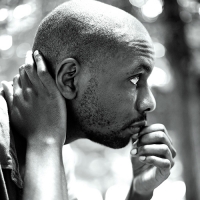
Ary Gordien
Ary Gordien is a research fellow in Anthropology at Université de Paris/LARCA, CNRS, Paris. In 2015, he defended a doctoral thesis in anthropology entitled « Nationalisme, race et ethnicité en Guadeloupe : constructions identitaires ambivalentes en situation de dépendance.
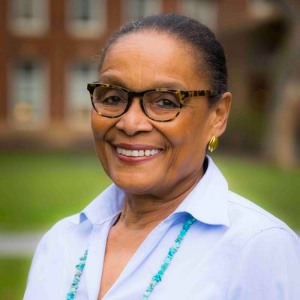
Carolyn A. Brown
Carolyn A. Brown is Associate Professor of History at Rutgers University and President of the African Studies Association (USA). She became interested in African history during the 1960s, when African countries were becoming independent. Her research interests are in West African labour and social history, emphasizing masculinity, nationalism, African involvement in World War II, and slavery in Southeastern Nigeria.
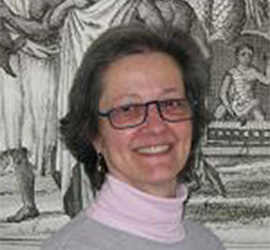
Colleen E. Kriger
Colleen E. Kriger is a Professor of History at the University of North Carolina at Greensboro. Her scholarship focuses on precolonial West and West Central Africa, especially on textiles, cloth currencies, and material culture..
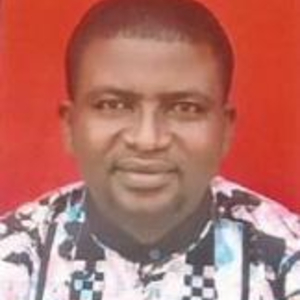
David L. Imbua
David L. Imbua is a member of the Department of History and International Studies, University of Calabar, Nigeria. He has received the Nigerian Breweries Plc & NYSC Prize for the best writer in 2003 when he was stationed at the National Youth Service in Maiduguri, Borno State. His research on Calabar and its hinterland have resulted in numerous publications. He has organized a number of international conferences that have led to publication. Imbua has carried out various assignments for UNESCO and is a contributor to the UNESCO General History of Africa, vol. 10.

Douglas B. Chambers
Douglas B. Chambers is Associate Professor of History at the University of Southern Mississippi where he teaches the African Diaspora in the Atlantic World, with a special focus on enslaved Igbo. He is the author of numerous articles and several books, and has served as executive editor of the Southern Quarterly (2005-2011), a CELJ-member journal founded in 1962. His current projects include: a study of Ibo Landing, St. Simons Island, Georgia, a historic site of resistance in the slave-trade era; a general history of the Igbo Diaspora from ca.1400-1900 CE; and a projected 10-volume collection of annotated runaway slave advertisements in the Atlantic World, 1700-1860.
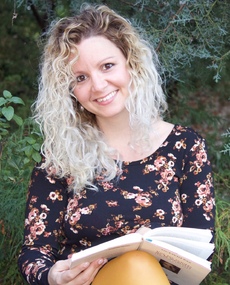
Elvira Aballi Morell
Elvira Aballí Morell is a doctoral student in the Department of Spanish & Portuguese at Vanderbilt University. Her main field of study is Afro-Hispanic Literature and Culture. She is an editor of the cultural magazine Furman217. She has organized and participated in different panels on cultural studies. Aballí Morell’s dissertation will focus on contemporary Afro-Cuban art and narrative. Her research interest encompasses Caribbean and diaspora writers in the United States, film, music, visual arts, language, and ideology.
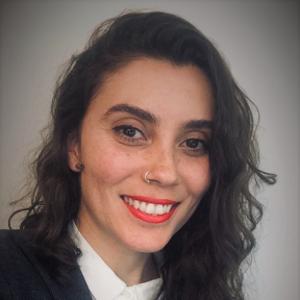
Érika Melek Delgado
Érika Melek Delgado is a Leverhulme Early Career Fellow at King's College London. She is the principal investigator of the project Historical African Childhoods (HAC Project), and Associate Director of Freedom Narratives. For her Early Career Fellow position, Érika was approved for The Leverhulme Trust and The British Academy fellowships. Prior to this position, she has completed a two-year Postdoctoral Fellowship at The Harriet Tubman Institute for Research on Africa and its Diasporas, at York University, Canada. As a postdoc fellow, she was awarded two major grants from the Andrew W. Mellon Foundation and the Social Sciences and Humanities Research Council (SSHRC) of Canada.
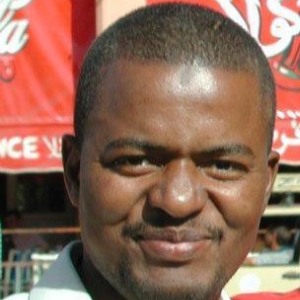
Ibrahim Hamza
Ibrahim Hamza holds a Ph.D. in history from York University. He taught African History and Slavery in Muslim Societies courses at Virginia Commonwealth University. He was also a visiting professor at SUNY Cortland and McGill University. His area of research is modern African history with specific reference to European expansion in Africa. He has also undertaken research on women and property rights in Muslim Africa as well as the history of slavery and freedom in the African savanna.
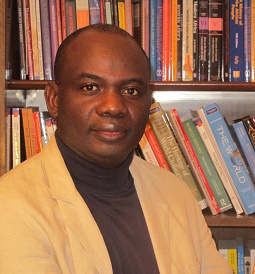
Ismael M. Montana
Ismael Montana is Professor in the Department of History at Northern Illinois University. His research draws on comparative studies of slavery, cultural transplantation and creaolization in the Americas and North Africa, examining their parallel trajectories within the broad sphere of Muslim West Africa, North Africa, and the Mediterranean rim. His current research project looks at African slavery, displacement, the development of culture, and citizenship in the western Mediterranean between the eighteenth and twentieth centuries. He is editor of the Journal of Global Slavery.
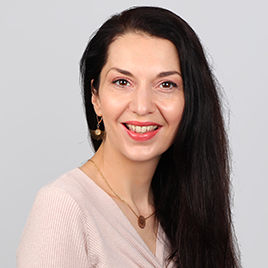
Klara Boyer-Rossol
Klara Boyer-Rossol is a historian of Africa and the slave trade in the nineteenth century, with specialization on the enslaved migration of the Makua from the interior of Mozambique to western Madagascar. She holds a post-doctoral fellowship at the Bonn Center for Dependency and Slavery Studies (BCDSS) da Universität Bonn.

Lori Podolsky
Lori Podolsky is a PhD student with the McGill University School of Information Studies and her research focuses on misrecognition, colonization and racism in digitization projects within Indigenous and African archival institutions. Currently she works with the McGill University Archives as an archivist and records manager, and in previous years taught digital curation for the School of Information Studies. She also worked with archivists from Jimma University to help develop a national digitization standard for the Government of Ethiopia.
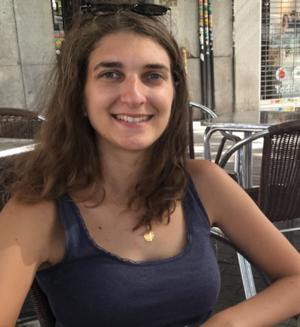
Mégane Coulon
Mégane Coulon is Visiting Assistant Professor in the Department of History, Colby College. She completed her PhD at the University of Worcester. Her research focuses on social formation in the colony of Sierra Leone in the nineteenth century. Her research draws on a detailed methodological study of the 1831 census of Sierra Leone and other demographic sources to assess the changing social composition of Freetown and how the increasing diversity of the population led to the emergence of new social hierarchies in the mid to late nineteenth century.
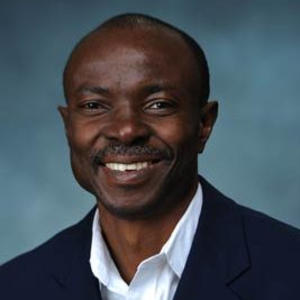
Mohammed Bashir Salau
Mohammed Bashir Salau is Professor in the Department of History at the University of Mississippi where he teaches African history, Islam in Africa, Nationalism in Africa, Africa and World War II and the history of slavery in Africa. He received his Ph.D. from York University in 2005. He has taught at Whitman College, Washington State, and has served as a visiting scholar at Kwara State University in Nigeria. His works focus on slavery, Islam, labor, European imperialism and African diaspora history. His primary research focuses on Hausaland and other parts of West Africa, and specifically the use of slaves on plantations. Presently, he is working on the biography of Dorugu Kwage Adamu, a Hausa man who was enslaved in West Africa in the mid-nineteenth century. He is interested in reconstructing the history of slavery in the Sokoto Caliphate, the largest state in West Africa in the nineteenth century. He is the author of The West African Slave Plantation (2011).
